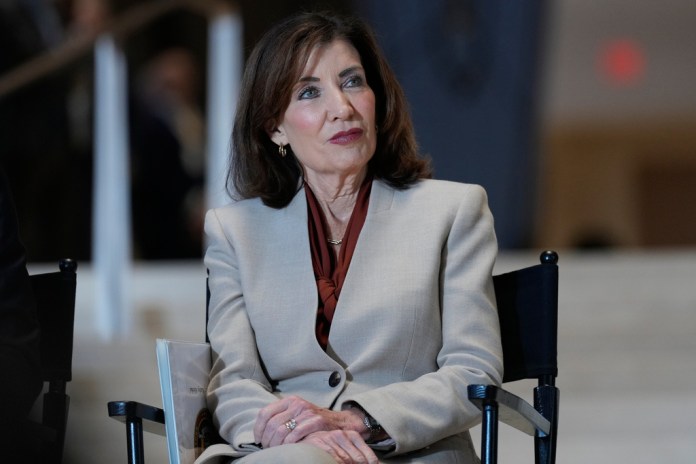Spokane mayor pulls plan to relocate CAT; potential ethical concerns around funding – Washington Examiner
The City of Spokane has decided to abandon its plan to relocate the Compassionate Addiction Treatment (CAT) facility amid significant public opposition. Initially, the city proposed relocating CAT at a cost of $1.8 million to a site off Springfield Avenue. However, after strong community backlash, Mayor Lisa Brown announced that the city would instead use those funds to support a new shelter model, which aims to distribute services more evenly throughout the area rather than concentrating them on Division Street.
The decision follows complaints from neighborhood residents, who argued that relocating CAT would exacerbate an already high concentration of service providers in their area. Although Mayor Brown has emphasized the need for more services for those struggling with addiction, she acknowledged that some community members oppose such changes when they might be affected directly.
The city will redirect the previously earmarked $1.8 million to support its new scattered-site shelters, moving away from large congregate models. However, potential ethical concerns have been raised regarding how these funds will be allocated, especially as the plan evolves. Brown aims to utilize an additional $1.2 million from federal pandemic relief to prevent the closure of the Hope House, a women’s shelter, while also planning for a transition of that facility’s model.
Despite these changes, some community groups continue to express concern over the safety and well-being of local families, advocating that any efforts to assist individuals with addiction should not compromise neighborhood stability.
Spokane mayor pulls plan to relocate CAT; potential ethical concerns around funding
(The Center Square ) – The City of Spokane on Thursday stepped back on its plan to relocate the Compassionate Addiction Treatment facility following significant backlash, opting instead to devote the funding toward its new shelter model, though another use of the remaining funds could raise ethical concerns.
Spokane announced its plan to move CAT out of the Division Corridor last month. All it would take is $1.8 million to purchase a property off of Springfield Avenue. Still, while an agenda from this week noted that the city had met with some of the neighborhood council and was committed to an ongoing relationship, residents scheduled an emergency meeting to voice their opposition.
Mayor Lisa Brown stated on Thursday, the day before the emergency meeting, that the city is no longer interested in purchasing the property for CAT. The decision follows an attempt from Councilmember Michael Cathcart to require Good Neighbor Agreements between service providers, the city and the neighborhoods where the facilities would go, which the city council ultimately shelved.
“Every day, I hear calls for increased services and treatment options for members of our community who struggle with addiction. I have been clear in my intent to have the City be a partner to the providers offering these services, while simultaneously de-congregating services off the Division St corridor,” Brown wrote in a statement. “But there are vocal critics who will never be satisfied with efforts to make those needed changes. Progress, it seems, is always welcome – just as long as it’s happening somewhere else.”
The Chief Garry Park Neighborhood Coalition issued a news release following Brown’s decision. If Spokane had relocated CAT, it would’ve been the seventh provider in that neighborhood alone; the neighborhood is already home to the Trent Resource and Assistance Center, or Trent Shelter, according to the release.
The $1.8 million intended for the relocation will instead go toward propping up Brown’s new scattered site shelters, which aim at moving Spokane away from the large congregate model.
“As we said from the beginning, we know that so many in our entire community are plagued with addiction and we greatly support individual’s efforts to get free from it,” the coalition wrote in its release. “But those efforts must not be at the cost of the safety and well-being of the children and families in our neighborhood.”
Communication Director Erin Hut told The Center Square that the $1.8 million, initially intended for CAT, originates from a pool of federal pandemic relief of roughly $3 million.
Brown hopes to use the remaining $1.2 million to prevent Volunteers of America’s Hope House, a women’s congregate shelter, from closing. However, that funding could include a provision requiring VOA to transition the shelter model and a “detailed Phase Out Plan.”
During a Request for Proposal sent out in June, VOA requested a similar amount of funding for Hope House, roughly $1.3 million. However, the provider then withdrew the request, asking that the city direct any available funding toward its other two requests.
The city council approved $3.9 million in contracts from the RFP on Monday, of which VOA received over $1.5 million for its two other projects. Prior to the approval, Cathcart asked why VOA had withdrawn its funding request for Hope House, to which Arielle Anderson, director of Spokane’s Community, Housing, and Human Services Department, did not provide a direct answer.
Instead, Anderson told Cathcart that it was to fully fund one of VOA’s other requests in the RFP.
Regardless, according to an Aug. 19 committee agenda, VOA had withdrawn its request around that time. Just three days later, Brown proposed using the $1.2 million available from the same pool of funding intended to relocate CAT to prevent Hope House from closing.
Essentially, VOA subverted the lack of funding in the RFP, in which 12 providers requested around $11 million, but only $3.9 million was available, and relied on Brown’s support behind the scenes.
Hope House, like CAT and the Trent Shelter, is located within District 1, which also encompasses the Chief Garry Park neighborhood. Hut said that if the city council approves the $1.2 million Hope House contract amendment, it would drain the rest of the money available in that pool of pandemic relief.
“I call on those critics to come to the table and propose constructive solutions, rather than merely pointing out flaws,” Brown wrote in her Thursday statement. “I also look forward to continuing our partnership with Spokane County to bring their behavioral health dollars to bear on these issues. Constructive dialogue is essential for progress, and those who raise concerns should also bring actionable items to move us forward.”
" Conservative News Daily does not always share or support the views and opinions expressed here; they are just those of the writer."




